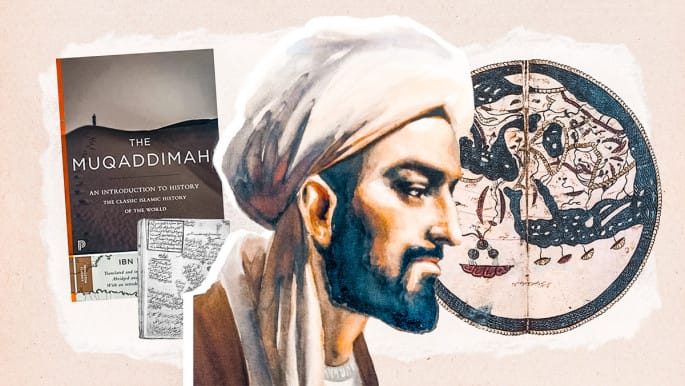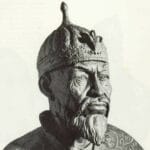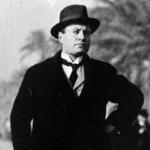Get ready to dive into the extraordinary world of Ibn Khaldun, a historical genius who dramatically impacted our understanding of human behavior and societal development. His groundbreaking ideas flipped the script on history, economics, and sociology, establishing him as a true visionary. In this article, we’ll uncover hidden facts about this influential thinker and explore his lasting legacy. From his mind-blowing insights on social dynamics to the intricate factors that contribute to civilization’s rise and fall, prepare to be amazed by the gems we’re about to share.
Astonishing Facts about Ibn Khaldun
Ever heard of a guy named Ibn Khaldun? Don’t worry, most people haven’t. But here’s the thing – he was way ahead of his time, like, centuries ahead. We’re talking about a 14th-century scholar who was dropping knowledge bombs about history and society that still resonate today. Let’s dive into some of the mind-blowing things this guy figured out:
1. The OG of Social Science
Imagine trying to explain Facebook groups or political rallies back when knights were still a thing. That’s basically what Ibn Khaldun was doing. He was fascinated by how people behave in groups, how societies rise and fall, and all the messy, complicated stuff in between.
Astonishing Fact: Historians actually call him the “father of sociology”! He was analyzing social dynamics way before sociology even existed as a field of study. Think about that – his ideas were so powerful, they helped create an entirely new way of looking at the world.
2. Geography is Destiny (Kind Of)
Ever wondered why some cultures are so different from others? Ibn Khaldun was onto something big when he realized that where you live has a HUGE impact on how your society develops. We’re talking climate, resources, even the landscape itself – all these things play a role in shaping culture, politics, and pretty much everything else.
Astonishing Fact: Today, the relationship between geography and civilization is a key part of both history and geography courses. But Ibn Khaldun was already making these connections way back in the 1300s! He was basically a one-man interdisciplinary studies program.
3. The Power of “Asabiyyah”
This one’s a mouthful, but stick with me. Ibn Khaldun came up with this idea called “asabiyyah,” which basically means social cohesion or solidarity. He realized that groups are stronger when they have a shared identity, common goals, and a sense of belonging. Sounds obvious, right? But this was a radical concept back then, and it helps explain everything from the rise and fall of empires to modern-day social movements.
Astonishing Fact: Sociologists and political scientists still use Ibn Khaldun’s theory of asabiyyah to understand group dynamics. It’s that insightful. He was basically predicting the power of things like nationalism and social media movements, centuries before they happened.
4. An Economics Wiz, Way Back When
Think economics is all about boring spreadsheets and stock markets? Ibn Khaldun would have set you straight. He understood that economics is about people, their needs, and how they interact. He wrote about supply and demand, the impact of taxes, and even how government policies can affect the economy—all concepts that are still relevant today.
Astonishing Fact: Some scholars consider him a forerunner to Adam Smith, the guy who practically wrote the book on capitalism (literally, he wrote “The Wealth of Nations”). That’s some serious economic street cred.
5. A Lost Genius Rediscovered
Here’s the craziest part: for hundreds of years, everyone forgot about Ibn Khaldun and his incredible work. It wasn’t until the 19th century that scholars rediscovered his writings and realized what a treasure trove of knowledge they had stumbled upon.
Astonishing Fact: European thinkers of the Renaissance were blown away by Ibn Khaldun’s ideas. Guys like Machiavelli and Montesquieu, who shaped modern political thought, were heavily influenced by his work. It’s like finding a lost Da Vinci painting in your attic – his ideas were that revolutionary.
So, the next time you’re studying history, sociology, or even just scrolling through your social media feed, remember Ibn Khaldun. He might have lived centuries ago, but his insights into the human experience are timeless. This guy was a true visionary, and the more we understand his work, the more we understand ourselves and the world around us.
What is a fun fact about Ibn Khaldun?
Ibn Khaldun figured out that a civilization’s location plays a BIG role in its development – centuries before it became common knowledge! He noticed that civilizations near water, with access to rivers and resources, tended to thrive. This challenged the prevailing belief that a civilization’s success was solely determined by religion or luck. While scholars today continue to explore the complex relationship between geography and societal development, Ibn Khaldun’s early observations were groundbreaking.
Why is Ibn Khaldun so important?
Ibn Khaldun, born in Tunis in 1332, led a life full of adventure and scholarship. His experiences, from serving rulers to working as a judge, likely fueled his most famous work, the “Muqaddimah” (“Introduction”). This masterpiece challenged the traditional linear view of history, arguing that civilizations rise and fall due to complex factors like economics, the environment, and social cohesion.
He introduced the concept of “asabiyyah,” a type of social solidarity crucial for a group’s success. However, he argued that as societies become comfortable, their “asabiyyah” weakens, leading to potential decline. This cyclical view of history remains relevant today, particularly when analyzing nations and empires.
Ibn Khaldun was also a pioneer in economics, exploring concepts like supply and demand and the impact of taxes long before they were widely discussed. His insights into human behavior, societal structures, and economic principles continue to influence how we understand the world today.
How did Ibn Khaldun change the world?
Ibn Khaldun, though not a household name today, left an indelible mark on several academic fields:
- History: He transformed history from a simple recounting of events to a nuanced study of social and economic forces. By emphasizing “common nature” and the influence of geography, he provided a framework for understanding why civilizations rise and fall.
- Sociology: Centuries before sociology was formally established, Ibn Khaldun explored the cyclical nature of civilizations, their interactions, and the forces that drive their development.
- Economics: Ibn Khaldun grasped the principles of supply and demand and the role of government in the economy. His ideas about economic intervention and growth remain relevant to modern economic debates.
- Political Science: His concept of “Asabiyyah,” the social glue that binds people together, remains crucial in understanding political power, social movements, and revolutions.
While his ideas took centuries to gain widespread recognition, Ibn Khaldun’s legacy continues to shape our understanding of the world around us.
What were the accomplishments of Ibn Khaldun?
Ibn Khaldun’s accomplishments extended far beyond his time:
- Transformed History: He introduced the idea that historical events are shaped by human choices, social forces, and environmental factors, not just divine will.
- The “Asabiyyah” Guy: His concept of social cohesion, “Asabiyyah,” is a cornerstone of sociological study, explaining the dynamics of group behavior and societal development.
- Economics Whiz: Ibn Khaldun’s economic theories, including his understanding of supply and demand, are still relevant today, demonstrating his remarkable foresight.
- Multidisciplinary Master: His work transcended disciplinary boundaries, influencing history, sociology, economics, and political science, showcasing his intellectual breadth.
His legacy continues to be explored as scholars uncover new layers of meaning within his work. For further exploration, check out the Stanford Encyclopedia of Philosophy’s entry on Ibn Khaldun.
What did Ibn Khaldun think about history?
Ibn Khaldun viewed history as a science, not just a collection of stories. He believed in studying it through philosophical principles and rigorous research, seeking to understand the causes and effects of events.
He emphasized the importance of context, arguing that understanding a historical event requires considering the social, political, and environmental factors surrounding it. This contextual approach helps us connect the past to the present and understand the lasting impact of historical events.
Ibn Khaldun also championed critical thinking, encouraging readers to compare sources, identify biases, and form their own judgments. He believed that knowledge, observation, and skepticism were essential for uncovering historical truths.
Unlike many of his contemporaries who saw history as predetermined, Ibn Khaldun believed it was an ongoing process shaped by human choices. He argued that our decisions today directly impact the future, a powerful concept that encourages reflection and responsibility.
Ibn Khaldun’s ideas revolutionized our approach to history, emphasizing research, context, critical analysis, and human agency. His principles continue to guide our understanding of the past and its relevance to our lives today.
What did Ibn Khaldun contribute to sociology?
Long before sociology became a recognized field, Ibn Khaldun was developing groundbreaking ideas about how societies function:
- Asabiyyah: This core concept, often translated as “social solidarity” or “group feeling,” describes the cohesive force that binds societies. He argued that strong asabiyyah contributed to a society’s success but could weaken over time, leading to decline.
- Cyclical History: He proposed that societies go through cycles of growth, decline, and collapse, influenced by social cohesion, economic conditions, and other factors.
- Social Conflict: He explored the role of conflict within societies, especially regarding political power and the distribution of resources.
- Importance of History: He believed studying history was crucial for understanding societal dynamics and patterns of human behavior.
Key Contributions:
| Concept | Description |
|---|---|
| Asabiyah | The cohesive force, often based on kinship, beliefs, or goals, that binds societies together. Strong asabiyah can lead to prosperity but tends to weaken over generations. |
| Cyclical History | The idea that societies experience predictable cycles of growth, decline, and collapse due to factors like social cohesion and economic conditions. |
| Social Conflict | Emphasized the significance of conflict between groups within a society, particularly in the context of political power and resource distribution. |
| Importance of History | Believed that history is essential for understanding the dynamics of societies and recurring patterns in human behavior. |
While the extent of his influence on modern sociology is debated, his ideas share striking similarities with later sociologists like Durkheim, Weber, and Marx. Ibn Khaldun’s work reminds us that studying the past can provide valuable insights into the present, encouraging us to critically analyze the forces shaping our own societies.
How long did Ibn Khaldun live?
Ibn Khaldun lived a long life for his time, spanning 73 years from his birth in Tunis in 1332 to his death in Cairo in 1406. His life can be divided into three periods: his early years dedicated to learning, his adventurous middle years filled with political intrigue and further studies, and his later years as a scholar, teacher, and judge.
Living through some of history’s most significant events undoubtedly shaped his worldview and influenced his writings, especially his masterpiece, the “Muqaddimah.” Historians continue to explore how his personal experiences, such as his time in politics, contributed to his cynical view of power dynamics.
Was Ibn Khaldun Religious?
As a devout Muslim, Ibn Khaldun’s faith profoundly influenced his scholarship. He viewed religion, particularly Islam, as a driving force in shaping human history.
However, he wasn’t afraid to engage in critical thinking and question certain religious practices and beliefs. For instance, he expressed skepticism about the need for intermediaries between humans and God.
Ibn Khaldun demonstrates that faith and intellectual curiosity are not mutually exclusive. He encourages us to approach religion and all topics with a thoughtful and analytical mind.
Why the world should remember Ibn Khaldun on his birthday?
Ibn Khaldun, a 14th-century trailblazer, offered groundbreaking insights into the workings of society. His ideas, remarkably ahead of their time, continue to resonate over 600 years later.
His concept of “Asabiyyah” highlighted the importance of social bonds for a civilization’s success. He also explored economic principles like supply and demand centuries before they became central to economic thought.
Despite his substantial contributions, Ibn Khaldun’s work often gets overlooked. His insights into societal rise and fall, power dynamics, and social cohesion remain incredibly relevant in today’s world.
We can honor this forgotten genius by remembering him, discussing his ideas, and sharing his work. Ibn Khaldun’s birthday presents an opportunity to appreciate his contribution to our understanding of the world and find inspiration in his words for building a better future.
Was Ibn Khaldun a Biologist?
While not explicitly a biologist, Ibn Khaldun possessed a deep fascination with the natural world, making keen observations about plants, animals, and their interactions.
His writings reveal surprisingly advanced insights for his time. For example, he hinted at the concept of evolution, observing how species gradually change over time, long before Darwin formalized the theory.
Ibn Khaldun also explored ecological concepts, recognizing the interdependence of species and the importance of balance in nature. He saw a connection between the social and biological worlds, understanding how the environment could shape societal development.
While it’s impossible to know if he would have embraced modern biology, his curiosity about the natural world, sharp observations, and ability to connect different fields make his work enduringly valuable. Ibn Khaldun’s legacy reminds us that groundbreaking discoveries often come from observing the world with fresh eyes.
For more intriguing facts about legendary figures, check out these articles:










1 thought on “Unmasking the Astonishing: Unveiling the Unexpected Facts About Ibn Khaldun”
Comments are closed.